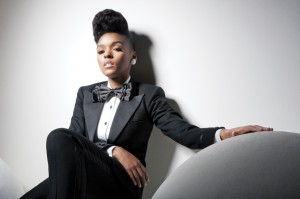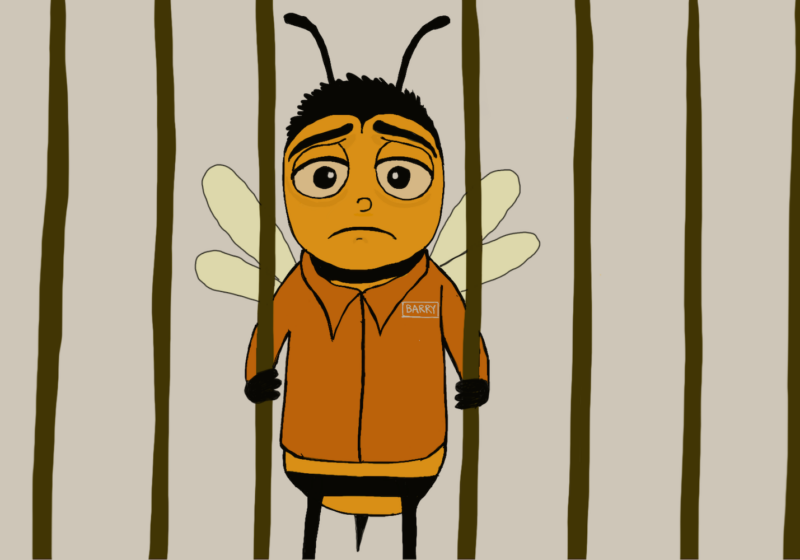Despite being a messianic android from the year 2719 — or at least, that’s the case for her alter ego — Janelle Monáe has enjoyed a pretty charmed existence in the 21st century. The Kansas City-born musician was first noticed by Big Boi of OutKast, who helped her get signed to Diddy’s Bad Boy Records in 2006. She released her first EP, “Metropolis: Suite I (The Chase),” the following year, and while it initially had little commercial impact, it established the continuing chronicle of Cindi Merriweather, her futuristic alter ego.
That concept was vastly expanded when she dropped her debut LP “The ArchAndroid (Suites II and III)” last year. The album is a 70-minute, kaleidoscopic journey through everything from hip-hop to soul to disco to psychedelia, and beyond. It earned Monáe, 25, a Grammy nomination, a litany of famous fans and status as one of the most out-there pop stars to hit it big in recent years.
Monáe will perform at the Palestra this Saturday as the headliner for this year’s Campus Consciousness Tour. We caught up with her beforehand to get some insights from her own private world.
“The ArchAndroid” is all over the place with genres and musical styles. Was it a hard sell to your record company to debut with something so ambitious?
Well, I have my own recording label, the Wondaland Art Society, so I have a partnership with Atlantic Records. I don’t get into business with anyone who doesn’t fully understand me on big ideas. Like us, [Atlantic is] into big ideas and they wanted to support us in whatever way. They gave us the time we needed to create the project, and we’re just thoroughly pleased with what we have done. That’s a blessing that I don’t ever take for granted. So I didn’t have any issues. I never came up with any categories or labels to put [the album] in — I let them do all that. I just created what I felt was honest to me, and they wanted to do everything they could to let the world know about it. So to answer your question: No.
You said the eclectic style of the album was inspired by growing up in the iPod generation. But wouldn’t you prefer people to listen to it as a cohesive piece, rather than shuffling around the tracks?
Sure. I would prefer a lot of things, that doesn’t mean they get preferred. But, with that said, I believe that there is a way that both can happen. That’s how we tried to do it, and I actually think it has worked. I can listen to the songs on my album — it’s not my album anymore, it’s yours, it’s the world’s now — but I can listen to them and not feel like [a song] isn’t solid by itself. It doesn’t depend on the next song or the song before to make it great. It’s great that the iPod generation exists. Nobody just listens to specific music that’s dedicated to a genre anymore. You can go, like I do, from Judy Garland to Jimi Henrix to James Brown to Michael Jackson to Pink Floyd. I think that our minds and our musical palettes have been conditioned to be more diverse, and that’s great, and I’m glad “The ArchAndroid” came out during this time.
There’s a lot of vintage styles on the album, and you’re heavily inspired by Fritz Lang’s [1927 silent film] “Metropolis.” Do you consider yourself a nostalgic?
No. I mean, I’m still growing, so I don’t know what I am, actually. It’s like I know what I am, but I can’t articulate what I am. And I don’t want to articulate what I am.
How important do you think it is for musicians to maintain an image?
It’s definitely important because when someone listens to your music, you want them to connect with the narrator — yourself — the person who actually did the music. The experience is knowing that this person made this music, it came from them, this is what they look like, this is their background, this is what they think, these are their core values. When people are listening to your music, it’s an experience that they’re buying into. It’s just like going to a restaurant. If it’s not clean, if it’s not what you’re looking for, you’re gonna turn back around and leave.
You’ve said that you’re going to continue the alter ego concept onto your next album. How long are you planning to continue it?
Well, there are only two people that know, and that’s “The” and “Future.” I don’t know why I just said that (laughs). But yeah, I’ll let you know as soon as I know. As of now, I’m just writing music and not even placing a date on it. I’m just writing the music for what I feel needs to be said at the moment.
Did the concept come to you fully realized, or are you expecting it to change as your career progresses?
A lot of things came to me in my dreams. I spent a lot of time, especially when writing “The ArchAndroid,” just waking up in the middle of the night, getting my iPhone and recording those ideas that I dreamt. So who knows? Things like that impact me and I’m sure it will continue to happen.
Which songs are your favorite to perform live?
I love being able to perform the album in its entirety. That’s why the Wondaland ArchOrchestra [her backing band] is coming with me for the tour. We’re going to recreate pretty much the entire of “The ArchAndroid” on stage, which is why I’m really excited about this college tour. I’m ready to really just get into the album.
Silverstein is a member of the class of 2013.





